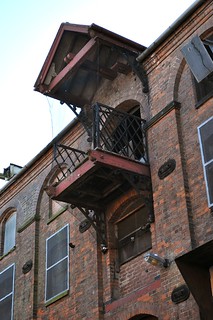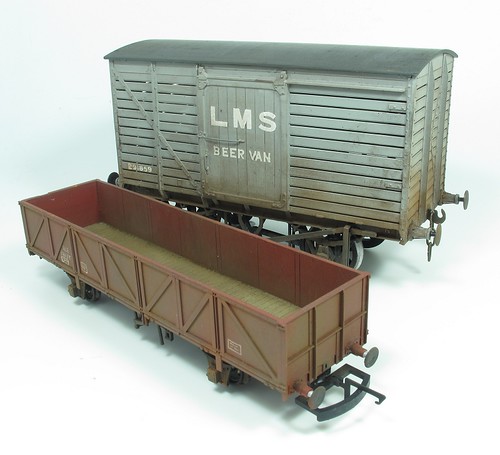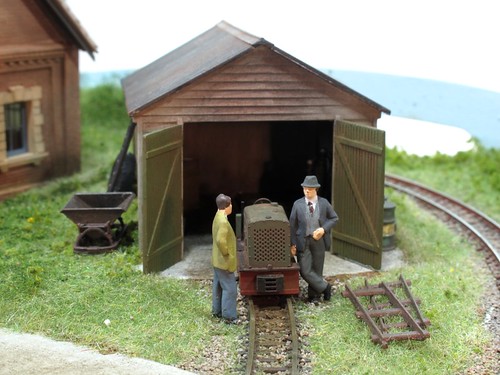My first contribution is a pair of wagons for transporting ale. One in 7mm dating back to LMS days, the other the 1970s paletised ale version in 4mm scale.
These are an interesting contrast in both assembly and design. The LMS beast is pretty much a standard wagon but with slatted sides to keep the product cool as it was transported. The kit is standard Parkside in this scale too - axleboxes moving in their W-irons should smooth out most lumps and bumps in trackwork. The brake gear is fiddly, and in my opinion, needs to be re-jigged slightly as it doesn't align with the middle of the wheel very well. Not a difficult job and you could ignore it, but this does show that the kit has been around a while.
In the 70s, all the barrel rolling had stopped and casks were strapped to pallets to be loaded using forklift trucks. This demanded a different type of vehicle for rail transport. Now the sides needed to be removable for speedy loading but it appears we didn't need a roof any more - presumably the casks were considered difficult to steal and waterproof enough to survive the rain!
 Away from the workbench, Any York and I visited the National Brewery Centre in Burton-on-Trent to have a look around. While there he took new photos of the fantastic N gauge model railway that shows the centre of Burton in the days when it was full of breweries and level crossings.
Away from the workbench, Any York and I visited the National Brewery Centre in Burton-on-Trent to have a look around. While there he took new photos of the fantastic N gauge model railway that shows the centre of Burton in the days when it was full of breweries and level crossings. The museum is a fantastic place to visit with loads to interest everyone. You can ride a simulator that takes you through the streets of the town by train, look at packaging through the ages (I know that doesn't sound exciting but it is fascinating), meet Shire Horses and have a close look at the drays they pull, and even enjoy a pint from the two micro-breweries on site.
I can recommend a pint of the Worthington's White. Well, it would have been rude to our hosts to refuse wouldn't it. On top of the lunchtime sample at the Burton Bridge Brewery, I was glad I'd travelled by train...
Before the Bridge though, we'd toured the outskirts of town looking for interesting buildings to pantograph. The veranda shown here is just one of the many details on the warehouses still standing. While most have been converted to office use, many original features remain and are well worth seeking out.
After all that beer, some food is in order and this month sees Part 2 of our Pizza layout.
This time the layout loses the snow scene under a load of static grass and flock powder. There's quite a log of detail added too including a Ferret armoured car. I've already been picked up on this having a rare, but not unheard of, turret. In my defence, I just built the kit and all this camouflaged stuff looks the same to me. Not to military modellers though.
Truth is, my first choice for this layout would have been an Alvis Stalwart but when I carried out a little research it turns out that these things might be good on water but they were hopeless on hard surfaces so probably inappropriate for my concrete road.
Finally, not one of my projects, but I have a to give a mention to the layout Juniper Hill. The piece on this opens with a model of a Hunslet built on a Hornby L&Y Pug chassis. Builder Mark Branson credits an article I wrote many months ago in Hornby Magazine for inspiring him to have a go at this conversion.
As I always say, it's really gratifying when anyone has a go at some hands-on modelling because of something I wrote. To see the results pop up in a print is even more special.




No comments:
Post a Comment